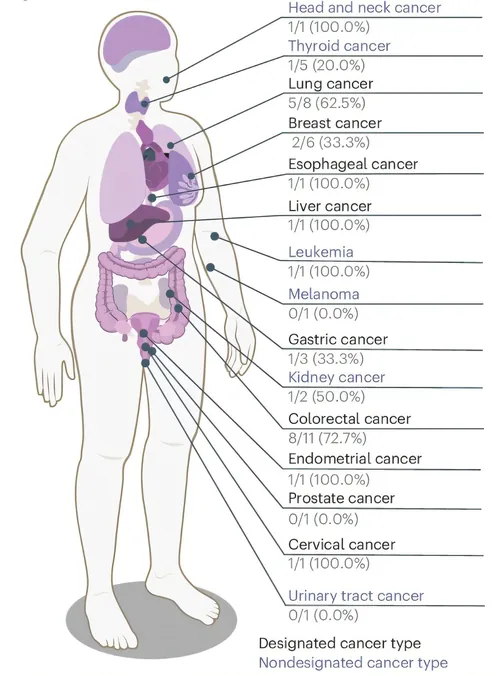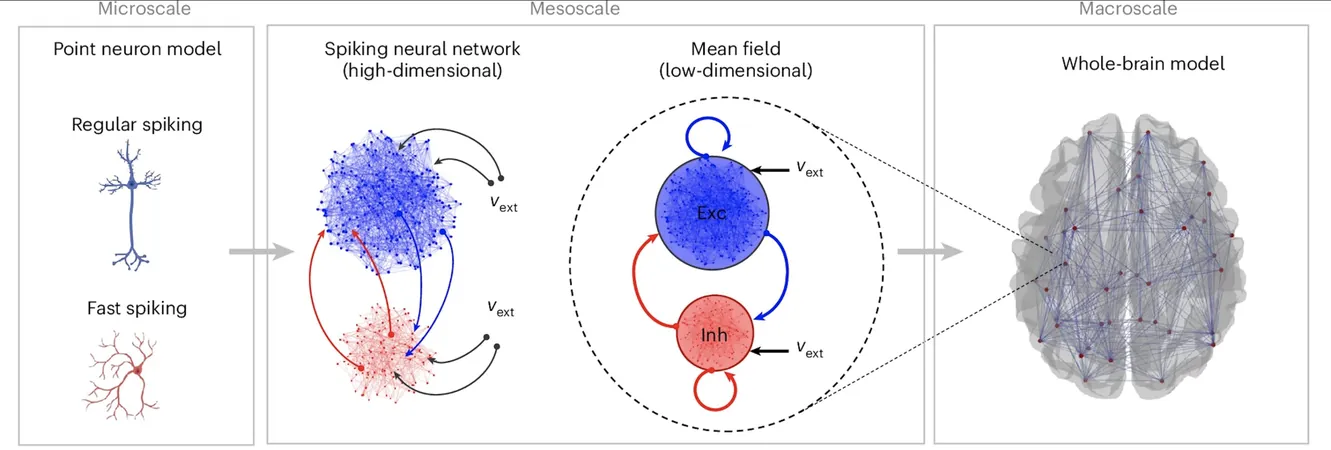
Revolutionary Blood Test Can Detect Multiple Cancers Early with Stunning Accuracy!
2025-06-02
Author: Sophie
Breakthrough in Cancer Detection Technology
In an exciting development, researchers from Geneseeq, in collaboration with a network of Chinese academic hospitals, have introduced a groundbreaking blood test capable of detecting various types of cancer using cell-free DNA (cfDNA). This remarkable multi-cancer early detection (MCED) test demonstrates an impressive 87.4% sensitivity and a staggering 97.8% specificity in independent clinical trials.
A Game Changer for Early Cancer Diagnosis
Detecting cancer at an early stage has always been a significant challenge, often leading to late diagnoses and tougher treatment scenarios. The current screening methods frequently fail to catch cancers that lack established protocols, highlighting the desperate need for innovation in this field.
Harnessing Cell-Free DNA for Noninvasive Testing
The test leverages cfDNA—genetic material released into the blood by tumors—as a promising, non-invasive target for detection. While traditional methods struggle with sensitivity, especially in the case of rare or early-stage cancers, this new test shows immense potential.
How It Works: Cutting-Edge Technology in Action
Published in the prestigious journal Nature Medicine, the study titled "Early Detection of Multiple Cancer Types Using Multidimensional Cell-Free DNA Fragmentomics" reveals the use of whole-genome sequencing combined with sophisticated machine learning models. These models analyze cfDNA fragmentation patterns to identify cancer signals and predict the tissue of origin.
Rigorous Validation Process Ensures Reliability
The research was meticulous—using data from 3,076 cancer patients alongside 3,477 non-cancer controls for model training. Validation involved multiple cohorts, ensuring robust results. Each step was executed blind to maintain objectivity, and advanced machine learning classifiers were employed to ensure the accuracy of both the cancer signal detection and tissue identification.
Stellar Results Across Cancer Types
In the independent validation cohort, sensitivity rates reached impressive levels: 79.3% for stage I and 86.9% for stage II cancers, with perfect detection for liver and bile duct cancers. The model also excelled in identifying lung, ovarian, and colorectal cancers, demonstrating its expansive application.
Prospective Analysis Yields Promising Findings
In a prospective cohort of 3,724 asymptomatic individuals, 43 cancer cases were uncovered within a year, with the test detecting over half of these instances and achieving a specificity of 98.1%. Peace of mind was further reinforced with a 99.4% negative predictive value.
A New Hope for Patients: What This Means for Cancer Care
Critically, nearly half of the detected cancers were missed by standard screenings, emphasizing the test's potential to transform early detection. High sensitivity for often-late-diagnosed cancers like liver, ovarian, and pancreatic, paired with accurate tissue origin predictions, offers new hope for timely interventions and improved patient outcomes.
Conclusion: A Bright Future for Early Cancer Detection
With these impressive validation findings, researchers are optimistic that the MCED test could revolutionize early cancer detection, ultimately supporting better clinical decision-making and leading to more effective cancer treatment strategies. This breakthrough could change the landscape of cancer care as we know it!









 Brasil (PT)
Brasil (PT)
 Canada (EN)
Canada (EN)
 Chile (ES)
Chile (ES)
 Česko (CS)
Česko (CS)
 대한민국 (KO)
대한민국 (KO)
 España (ES)
España (ES)
 France (FR)
France (FR)
 Hong Kong (EN)
Hong Kong (EN)
 Italia (IT)
Italia (IT)
 日本 (JA)
日本 (JA)
 Magyarország (HU)
Magyarország (HU)
 Norge (NO)
Norge (NO)
 Polska (PL)
Polska (PL)
 Schweiz (DE)
Schweiz (DE)
 Singapore (EN)
Singapore (EN)
 Sverige (SV)
Sverige (SV)
 Suomi (FI)
Suomi (FI)
 Türkiye (TR)
Türkiye (TR)
 الإمارات العربية المتحدة (AR)
الإمارات العربية المتحدة (AR)